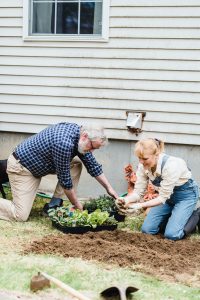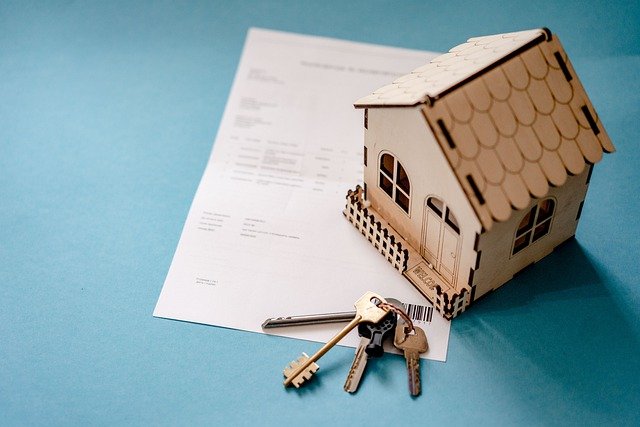
Retirement can be an incredible period of life. One finally has plenty of free time to do all those activities that were left “for later.” Also, there is no longer the stressful financial uncertainty characteristic for younger people. Finally, the time has come to slow down and enjoy life’s delights in peace and without haste, just as you always dreamed of doing. If buying a house after retirement is something you decided to do, we here at Flag Homes Real Estate have gathered some tips on making this process most effective and the least exhausting.
1. Think about the lifestyle changes you might want to introduce
Before looking for a house, think about what will be different now that you no longer work. You might have needed lots of space for your children that used to live with you. If purchasing a house after retiring means fewer people under the same roof, consider how big this house needs to be. It would be convenient if you didn’t have to move often in this phase of your life, so consider the limitations your health might present you with in the future. A house with fewer stairs and prominent thresholds is likely a better option for people of a certain age that we are all bound to reach. Also, think about how much storage space you need. People accumulate lots of unnecessary stuff over the years, and relocation is an excellent opportunity to finally sort them out. Suppose the entire relocation process seems exhausting, as it probably always did. In that case, you could hire a relocation professional such as Mod Movers and let them make this transition comfortable for you. Maybe the house you need is much smaller than you thought it should be, so this step might save you money and make your life cozier in the future.
2. Before buying a house after retirement, you might need to sell the old one first
Purchasing a house is a significant investment in life. Naturally, it would help if you considered your finances first. The easiest on your budget would be to sell the old house first and review the options on the market within the range from the sale. So, before you head straight to buying a new house after retirement, contact a real estate agent to consult about the sale of the old one. Also, talk to your children about this sale. Maybe their plans are related to your old house somehow, and this isn’t a moment to stress yourself out with unnecessary family disputes. Researching the housing market will give you some idea about the sale prices of the houses you consider buying and the price you can ask for your old house. That means you will be doing two valuable things at once.

3. Location is crucial
This aspect of your new home might be essential. At this stage of your life, it is a good idea to stick close to your family and friends. There’s no shame in getting some help from your loved ones from time to time. Apart from that, life is much better when you are surrounded by the people you love, and not just keep in touch with them over the phone. You should research the neighborhoods you might relocate to and contemplate whether the type of surrounding activities suits you. For example, if you prefer relaxing in peace nowadays, you should avoid areas with lots of playgrounds and too much traffic. On the other hand, if walking to the store is more convenient for you than driving, a house that is located near the stores would be preferable. Review what matters to you in terms of location and choose wisely.
4. Decide on the price you are ready to pay for your new house
You must evaluate your finances thoroughly when looking for new properties to buy. As we mentioned before, selling the old house is one option. This would be ideal since you wouldn’t have to repay bank-loaned sums, which would be both stressful and a financial burden. On the other hand, if selling an old house after you stop working to acquire a new one isn’t possible for one reason or another, a mortgage might be one of the options. Yet, before taking out a mortgage or other kinds of loans, discuss it with your children. All our problems with debts are inadvertently problems for our children as well. They need to be informed about important decisions we make which could also affect them in the future.

5. Maintenance costs of your future home are an important feature
You might think a house that is a little older is good for you since it’s within your price range. That may be true, but the older properties likely need more investments. Not only do you have to pay for the new home, but you need to maintain it as well. All that is broken likely needs to be fixed, and older homes will have more such cases. Inspect the house you are buying after retirement carefully. Write down all that has to be fixed and how much it will cost. Also, if the house is bigger, be aware this would mean higher electricity bills, for example. A good thing about retirement is that you know how much money you have at your disposal. Take some time to review how much living in each new house you consider buying will cost you. You will need to decide which one suits your income.
6. Don’t forget about the yard
When a person is employed and relatively busy throughout the day, time dedicated to gardening is often minimal. This can change after retirement. Getting a new home after you stop working can open doors to new activities. Physicians agree that staying active is highly beneficial for people of all ages. It could be fun to have a yard in which you could do some gardening. This hobby will entertain you and be a source of light exercise right outside your door.

7. With some professional help, an interstate move can be easy and productive
If, after you stop working, you decide to buy a new house and move from California to Arizona, there are several aspects worth analyzing first. Since you are moving to a different environment, review your belongings, as you might not need all of them. A new country can mean new activities, which in turn may require that you acquire some new possessions. Don’t fret about the fact that this is an interstate move. The experts know what they are doing. Regarding your move, you can hire interstate movers and have a California-based team to handle it. All you need to do is relax and trust the professionals in this area of expertise.
Final thoughts
A good plan and solid research will make buying a house after retirement fun and easy. Dwell on the life you intend to build in the future years. Then, review these seven tips, and this significant change will go smoothly. New and exciting times await you.



